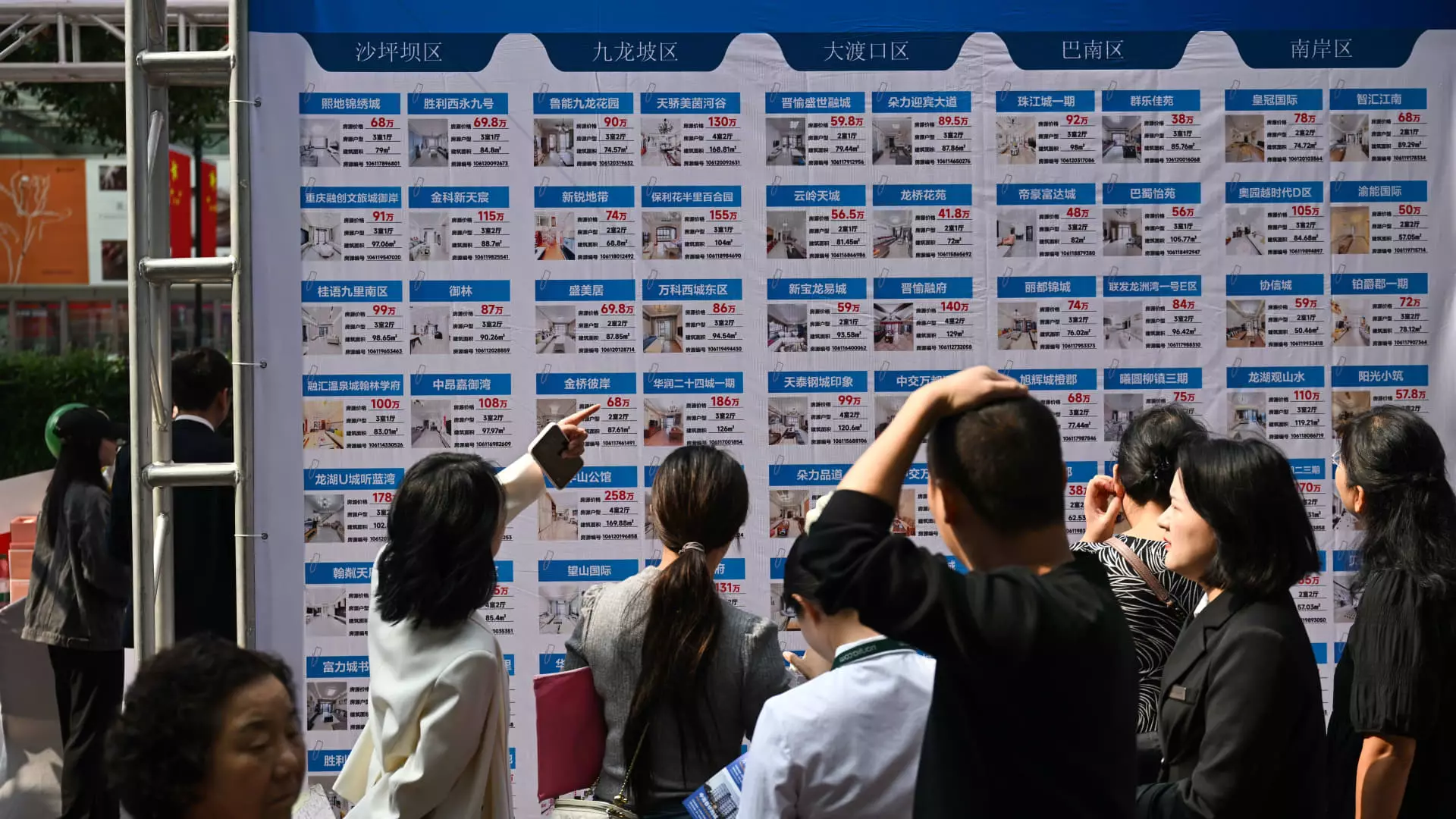Analyzing the Resurgence of KE Holdings Amidst China’s Real Estate Challenges

As China’s real estate market grapples with a pronounced downturn, all eyes are on key players such as KE Holdings, also known as Beike. The company’s substantial presence in the housing transaction and services sector has garnered attention, particularly as it operates the Lianjia platform, a go-to choice for apartment seekers in major cities. KE Holdings’ stock, traded under the ticker “BEKE” in the United States and also available in Hong Kong, has experienced impressive growth—showing a 38% increase in 2024 thus far. This notable rise starkly contrasts an index of Chinese property stocks in Hong Kong, which has managed a paltry increase of just under 3% amid a turbulent few weeks.
Analysts are cautiously optimistic about KE Holdings’ trajectory, predicting that government initiatives designed to bolster the faltering real estate sector may provide a significant boost to its business model in the coming year. The report from Jefferies particularly underscores the importance of new and existing home transactions benefiting from recent support measures implemented by the Chinese government. Indeed, the investment firm rates KE Holdings as a buy, projecting a price target of $30 per share. This estimation indicates a potential upside of nearly 34% from its closing price of $22.41, marking KE Holdings as a compelling candidate for investors looking to navigate the complex landscape of the Chinese real estate market.
The backing of Chinese authorities plays a pivotal role in shaping the outlook for KE Holdings and its peers. In late September, President Xi Jinping convened a critical meeting that emphasized the urgency of addressing the real estate market’s decline. This pronouncement coincided with announcements from the People’s Bank of China regarding mortgage rate cuts and extended support policies aimed at invigorating growth in the sector. These initiatives are expected to ripple through the market, especially as notable cities like Beijing have relaxed home purchase restrictions just in time for a major holiday period.
Industry data emerging from this holiday timeframe indicates that real estate transactions surged, hinting at a renewed consumer interest. However, the improvement depicted in this data must be viewed through a lens of caution. As Richard Tang, chief of research at Julius Baer, aptly points out, the recovery in China’s property market could be protracted, even with supportive fiscal measures. He encourages investors to leverage any market strength to lessen exposure to property-related investments, indicating a potentially cautious approach as the landscape continues to evolve.
The sentiment among home buyers remains a critical variable affecting the sustainability of transaction volume in the market. Bank of America Securities recently highlighted insights from experts within a prominent property agency chain, suggesting that home prices could witness a further decline of approximately 10% before settling. This perspective reinforces an important consideration: despite any short-term spikes in activity, fundamental changes in buyer behavior may remain elusive.
KE Holdings is reported to possess a significant market share within both existing and new home brokerage channels, a fact that may bolster its resilience amid broader market uncertainties. However, considerable skepticism lingers regarding long-term growth. The cautious viewpoints articulated by analysts, including those from BofA Securities, reflect a complex interplay between short-term optimism and long-term realism. While BofA has adjusted its price target to $24 from $21, the overall rating remains neutral—an indication that challenges persist.
Looking towards the horizon, the outlook for KE Holdings is intertwined with broader market dynamics and regulatory decisions. Goldman Sachs recently noted that KE’s Hong Kong-listed shares may soon qualify for inclusion in the connect program designed to facilitate investments from mainland China—an event that could significantly enhance stock liquidity and appeal. This potential inclusion, combined with the recent corrective measures by the government, positions KE Holdings as a poised beneficiary of policy changes.
Additionally, the company’s robust financial position—bolstered by a net cash reserve of approximately $10.5 billion—provides a strategic cushion. KE Holdings’ commitment to returning 6-7% shareholder yield via buybacks and dividends showcases a proactive approach to enhancing shareholder value even amidst challenging market conditions. Goldman Sachs maintains an optimistic valuation outlook on KE Holdings, setting a price target of 54 Hong Kong dollars and projecting steady growth for its U.S.-listed shares at $21.
While KE Holdings finds itself in the crucible of a transformative real estate market, analysts remain hopeful about its future potential. The convergence of government support, liquidity initiatives, and the company’s strategic foothold in the market suggests that, despite the hurdles ahead, KE Holdings may yet capitalize on the opportunities that lie within a resilient and evolving landscape.





